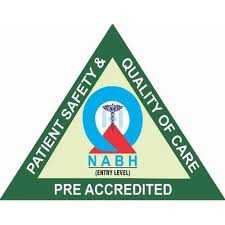
Once you have been diagnosed with cataract, your eye doctor will proceed with doing your pre surgery work up which involves a battery of tests. Cataract surgery is a common and effective procedure that helps restore clear vision to individuals suffering from cataract, a clouding of the eye’s natural lens. If you or a loved one are considering cataract surgery, it’s natural to have questions about what the process entails. In this blog, we will guide you through what to expect before, during, and after cataract surgery, helping alleviate any concerns and ensuring a smoother journey to improved vision.
These tests include:
- Slit Lamp Examination: Every part of the eye, right from the patient’s lid to the retina is examined in detail. If the patient has lid disease such as meibomian gland dysfunction, or dry eye disease, we first treat the pathology and then plan surgery. Appropriate time for improvement in such situations can be up to one month.
- Biometry: Biometry Ideally, optical biometry should be performed. It is the technique of calculating the Intraocular lens power which will be implanted during cataract surgery. Calculating an accurate biometry is extremely important and optical biometry is gold standard approach which is accepted all over the world. It ensures highly accurate readings and uses sophisticated calculation formulae which an ultrasound biometry is incapable of doing.
- Optical Coherence Tomography (OCT): This is a machine which examines the retina by slicing it into smaller sections allowing us to examine it layer by layer. Even though the retina can be examined on a slit lamp using a 90 D lens, OCT helps us examine innocuous lesions which can easily be missed on routine examination. It gives the Ophthalmologist more confidence in advising premium IOLs without hesitation since a good outcome can be expected if the retina and the optic nerve are healthy.
- B Scan: When the cataract becomes extremely cloudy, it becomes difficult to view the retina. In such a situation, even an OCT cannot be performed since the light rays cannot penetrate the cataract. A B Scan is then performed to image any abnormalities in the retina. This is helpful since any abnormality detected in pre-op examination can be communicated to the patient, helps in better counselling and doesn’t set their expectations too high.
During Cataract Surgery
Once the patient is on the operation table, the surgical time out is done. The patients name, eye to be operated, IOL power are reconfirmed. The eye is painted with betadine and then it is draped. Most patients are suitable for surgery under topical anesthesia which does not require any injection to anaesthetize the eye and nor is there any need for patching post surgery. The surgery in 99% cases is mostly routine and takes 10-12 minutes. Advanced cataracts and special situations may require longer time.
After cataract surgery
Vision usually recovers the next day but full recovery takes 4 weeks. After 4 weeks, a spectacle number is prescribed, if any.
The road to recovery begins immediately after surgery. While vision may improve within the first day, complete recovery takes around four weeks. To maximize healing and safeguard your newly improved eyesight, follow these essential post-surgery tips:
Some post-surgery tips to be followed are:
- Follow up should be done as advised by the Ophthalmologist.
- Use eye drops as recommended by your doctor
- Ensure that water, shampoo or soap does not go in your eye.
- Sunglasses should be worn when you go outside.
- Wear your eye shield when you sleep since there is a risk for injuring the eye while sleeping
- Avoid eye makeup for a month
- Avoid swimming for 6 weeks
Conclusion
Cataract surgery marks a significant turning point in regaining clear vision and quality of life. From thorough pre-surgery assessments to vigilant post-operative care, each step plays a crucial role in achieving a successful outcome. The advancement of technology, precise procedures, and a dedicated eye care team ensure that your journey through cataract surgery is a path toward brighter, clearer, and more vibrant vision. Remember, the key to optimal results lies in adherence to medical instructions and open communication with your ophthalmologist throughout the entire process.
Call Now at 0120-2481481, 2480480 +91 88003 13134 or email us at info@visionplus.net.in.
Book an Online Appointment: https://visionplus.net.in/contact/

